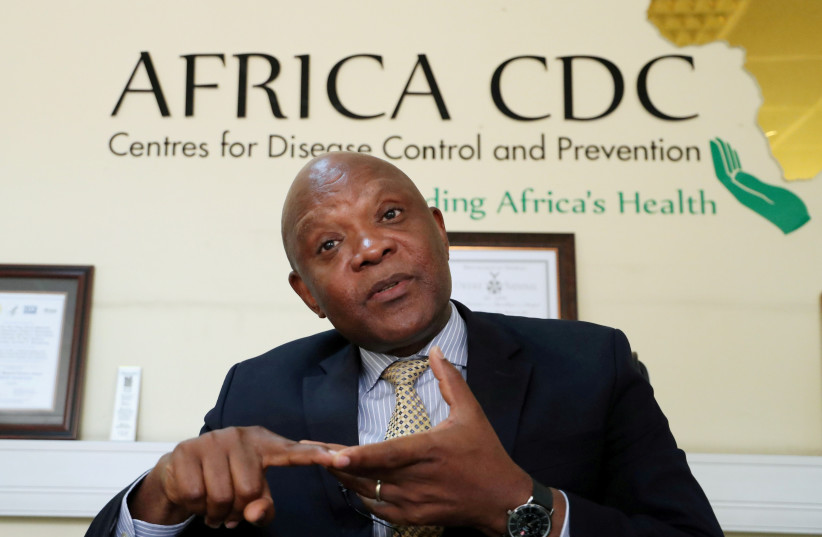On October 17, I was honored to emcee a Zoom ceremony for the presentation of the $100,000 2021 Boris Mints Institute Prize for Global Challenges to Dr. John N. Nkengasong, director of the Africa Centres for Disease Control and Prevention (Africa CDC).
The Boris Mints Institute for Strategic Policy Solutions to Global Challenges at Tel Aviv University was founded by philanthropist and World Jewish Congress Vice-President Dr. Boris Mints, who serves as its president, “to encourage research, planning and innovative thinking in order to promote a significant positive change in the world.”
Dr. Nkengasong, a world-renowned virologist who hails from Cameroon and was appointed the World Health Organization’s Special Envoy for Africa, was honored “for his vital contribution to developing an effective and evidence-based response to the COVID-19 pandemic across Africa.”
Africa CDC has led the fight against the unprecedented pandemic on the African continent, and Nkengasong said that the launch of the body in 2017 was fortuitous, coming two years before COVID-19 hit.
At the virtual ceremony, Nkengasong was praised by TAU President Prof. Ariel Porat, who presented the prize, as well as Prof. Silvia Koton, chair of the Prize Evaluation Committee, Dr. Mints and Prof. Itai Sened, dean of the Gershon H. Gordon Faculty of Social Sciences and head of BMI, who invited him to Israel.

In his acceptance speech, Nkengasong gave an overview of the spread of COVID-19 in Africa and the urgent need for increased access to vaccines. He said that after some 215,000 deaths, only five percent of Africans had received two vaccinations, and CDC Africa’s goal was to have 60% of the population vaccinated by the end of 2022.
He warned that “history must not repeat itself,” pointing to the lethal spread in Africa of HIV/AIDS at the end of the 20th century and the flu pandemic in 2009 due to lack of access to medical treatment. “Today in 2021 we find ourselves in very similar scenarios,” he said. “I would argue that Africa needs its own vaccine manufacturing capabilities. As a continent we import 99% of our vaccines, and produce only 1% of our vaccines, which means 12 million doses of vaccines are manufactured in Africa. As a continent of 1.2 billion people, we consume 25% of global vaccines.”
All this clearly suggests that Africa must do all it can to produce its own effective vaccine, he said. To carry out this “extremely important” mission, Africa CDC has gathered heads of state from across the continent, convening the biggest virtual summit in April, with 40,000 participants from 70 countries.“At the end of that meeting, the conference launched Partnership for African Vaccine Manufacturing (PAVM), which is going to be a framework and a road map for us to manufacture vaccines for the continent,” he said.
While inoculating all of Africa is “an ambitious journey,” he said, “I must say I am extremely delighted and encouraged that 10 countries in Africa have engaged in that journey for vaccine manufacturing.”
He said among the lessons to be learned is that “without vaccines and vaccination, the COVID-19 situation will get worse before it gets better, and vaccine manufacturing is key for Africa’s health security.”
Nkengasong said he would donate the proceeds of the prize to supporting the vulnerable populace in the northwest and southwest of Cameroon, and thanked Prof. Sened for inviting him to Israel and offering to share Israeli know-how on fighting the pandemic.
“I can’t wait to come to Israel,” he said. “My wife and I love Israel. It’s our favorite destination. I can’t wait to come there with a group of scientists from Africa, so I’ll take your invitation up before you change your mind.”
